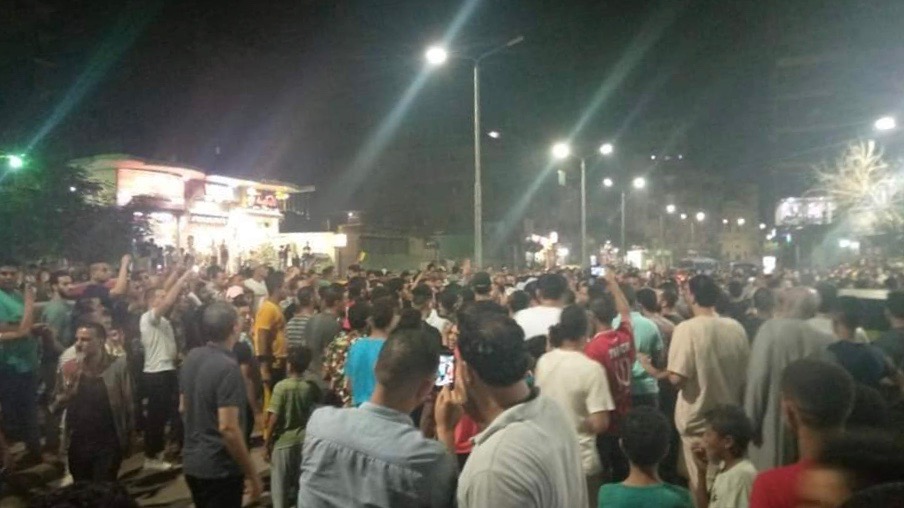Protests erupted in Egypt’s Giza governorate on September 7, Monday, after the custodial death of a civilian who was allegedly tortured under police detention. Middle East Eye reported that 26-year-old Islam Al-Ostraly, a bird shop owner in the Moneeb neighborhood of Giza, was roughed up, arrested and placed in detention on September 5 following an argument with a police officer.
During the altercation, the police officer reportedly demanded that Al-Ostraly pay him a bribe. He was later dragged to the nearby police van and arrested on the pretext that his shop was covered with front shades which are illegal. He was later taken to the Umm al-Masryeen hospital by the police, who claimed that he had fallen ill in prison and later died of a ‘circulatory attack.’ As per his family, various signs of extreme torture were found on his body, including cuts, burns, bruises, as well as scars on the testicles and neck.
Protests began after the police refused to file a complaint by Al-Ostraly’s family against alleged police brutality. The family also demanded a probe into Al-Ostraly’s sudden and suspicious death. In response, the police banned their entry into the police station and even detained some of the family members. This angered residents in the neighborhood, leading to a spontaneous protest around the police station.
Over 300 protesters initially gathered outside the Umm al-Masreyeen hospital and later marched to the police station, chanting slogans saying “the police are thugs” and “we want justice”.
The police came down heavily on the protesters and fired live warning shots in the air to disperse them. They also used tear gas canisters against the protesters. Police officers in plainclothes reportedly arrested at least 10 of the protesters. The current status of those arrested remains unknown.
The next day, on September 8, some members of the Al-Ostraly family were arrested by the police in a clear attempt to intimidate them into signing his official death certificate which states the official cause of death as ‘circulatory failure’.
Circulatory failure is reportedly one of the most commonly cited causes used to explain away the deaths of prisoners in police custody or under detention by other state agencies.
Following Al-Ostraly’s death, police sources reportedly told local media that he was a suspected drug dealer, a claim strongly refuted by his family and friends. Police have also accused him of being involved in a street fight with another man, and stated that he “created problems in the area”. Denying the allegations of torture, the police claimed that he had suffered injuries during the street fight. Residents have contradicted the police version.
Human rights organizations have consistently raised concerns about the widespread reports of torture in Egyptian prisons and detention centers, as well as the custodial deaths of prisoners and political detainees. Egypt’s Nadeem Centre for the Rehabilitation of Torture Victims documented 55 cases of torture in state custody in the last two months. 15 of them resulted in death, most of them due to deliberate medical negligence by the authorities.
According to human rights group Committee for Justice, at least 1,000 prisoners have died in detention in Egypt since July 2013 when president Abdel Fattah El-Sisi took office. There are currently around 60,000 political prisoners being held captive by the Sisi regime, according to Egyptian-American human rights activist Mohamed Soltan. These include political opposition figures, journalists, lawyers, human rights activists, writers, government critics and protesters. Many of those detained are being kept in jail illegally without charge or trial, in violation of international law.





